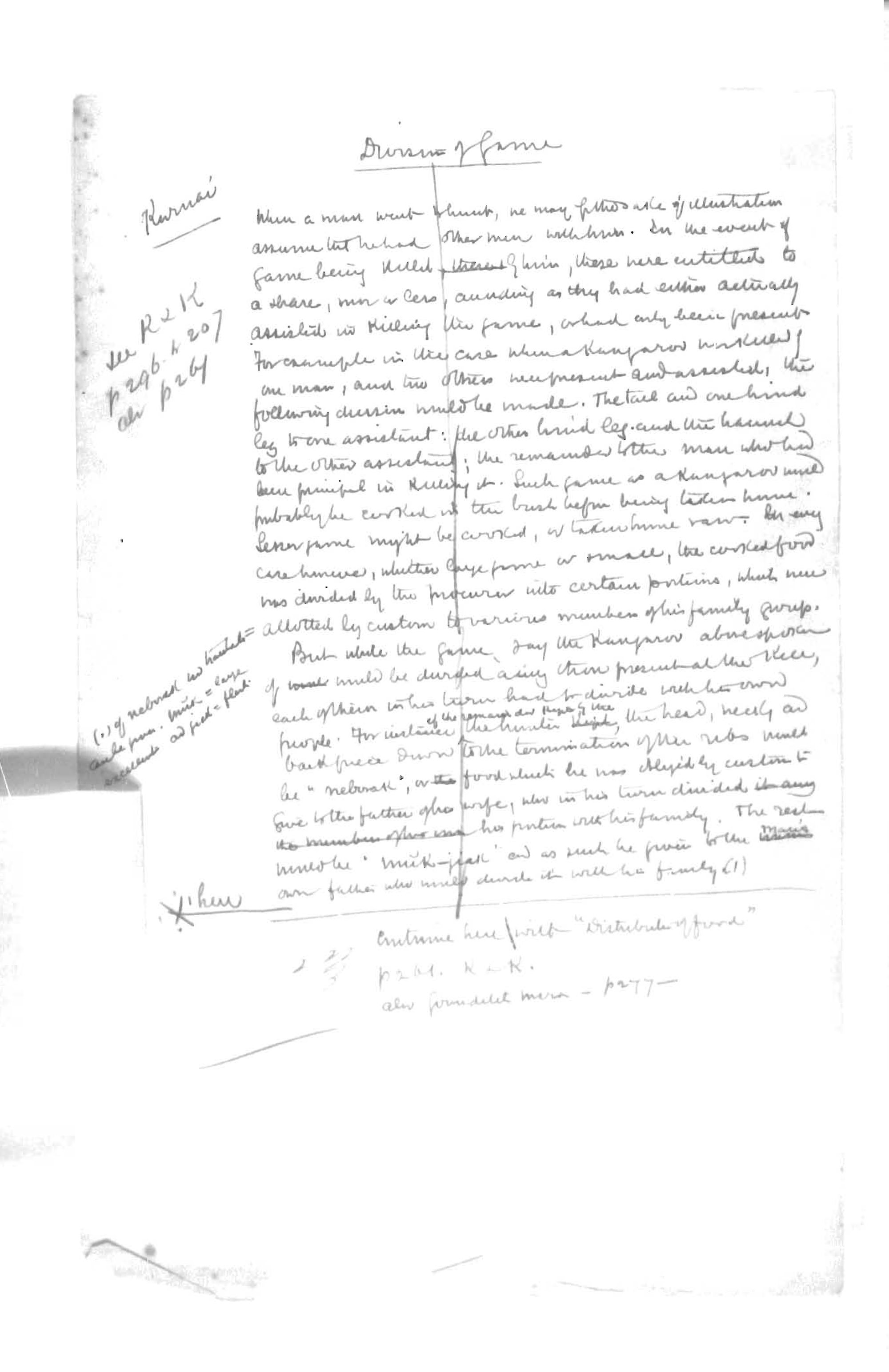Notes about Camping and Food Division

Transcription - Page 19
Division of Game
Kurnai
When a man went to hunt, we may for the sake of illustration
assume that he had other men with him. In the event of
game being killed, [there - crossed out] by him, there were entitled to
a share, more or less, according as they had either actually
assisted in killing the game, or had only been present.
For example in the case when a Kangaroo was killed by
one man, and two others were present and assisted, the
following division would be made. The tail and one hind
leg to one assistant: the other hind leg and the haunch
to the other assistant; the remainder to the man who had
been principal in killing it. Such game as a Kangaroo would
probably be cooked in the bush before being taken home.
Lesser game might be cooked, or taken home raw. In every
case however, whether large game or small, the cooked food
was divided by the procurer into certain portions, which were
allotted by custom to various members of his family group.
But while the game, say the Kangaroo above spoken
of would be divided among those present at the kill,
each of them in his turn had to divide with his own
people. For instance if the remainder kept by the the [sic] hunter [kept - crossed out], the head, neck, and
back piece down to the termination of the ribs would
[part of this line is illegible] food which he was obliged by custom to
give it to the father of his wife, who on his turn divided [it among - crossed out]
[the members of his own - crossed out] his portion with his family. The rest
would be "mŭk-jiak" and as such be given to the man's
own father who would divide it with his family (1)
continue here with "Distribution of food"
p. 261 K + K
also Gournditch mera - p. 277
[written in left side margin]
see K + K
p. 296 + 207
also p. 267
(1)of neborak no translation
can be given. mŭk= large
excellent and pick = flesh
※here
Document Details
